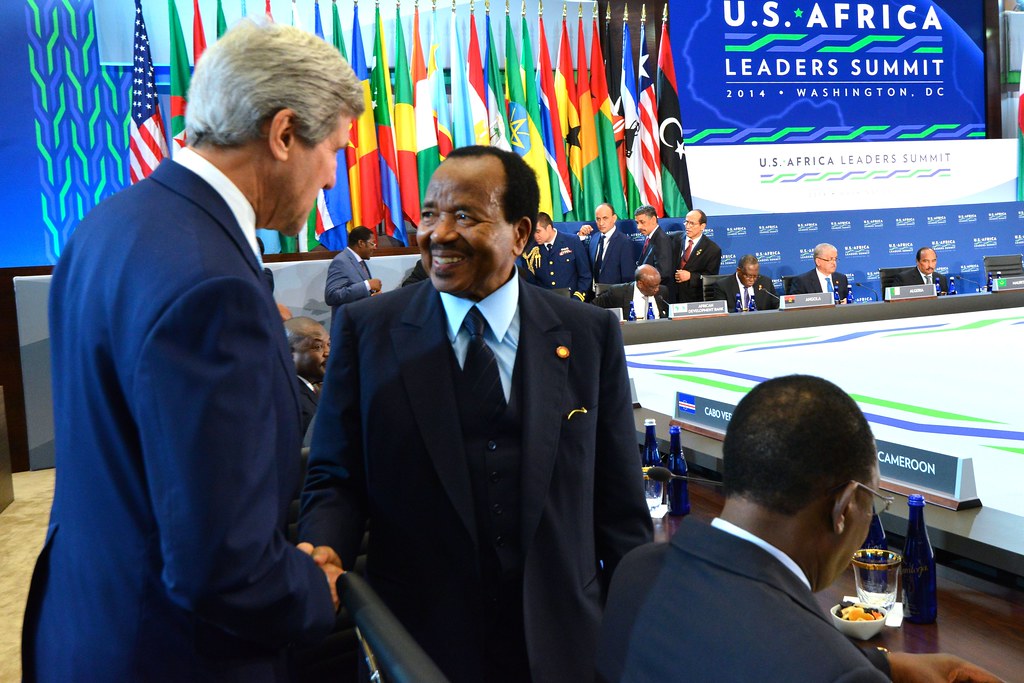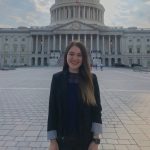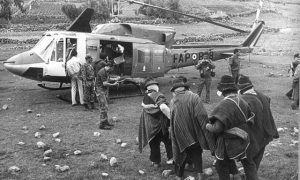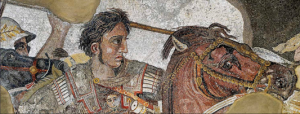The Republic of Cameroon, originally named Kamerun, is located in West Africa. The current President is Paul Biya, who is also one of only two presidents that Cameroon has had and the longest-serving leader in Africa, for over thirty years. Biya started his political career at the age of 43, as Cameroon’s Prime Minister under Ahmadou Ahidjo in 1975, becoming his successor in 1982. Because of his presidential ability, Biya modified the Cameroonian Constitution to allow presidents to serve for more than two terms and to be eligible for re-election every seven years.1 Even though Biya’s previous presidential elections ran smoothly, as 2016 arrived, Biya knew he would be faced with a formidable opponent, the Southern Cameroons National Council (SCNC).
In 1955, Kamerun gained independence from France and Great Britain. Then, in 1961, Ahmadou Ahidjo was elected President and renamed the country to the Federal Republic of Cameroon. Five years later, Ahidjo banned all political parties to avoid the lobbying of ethnic groups that were seen as a threat to national unity, including English-speaking communities.2 Nonetheless, in 1972, Cameroon created a new constitution that declared French as the language of the Eastern state and English as the language of the Western state, although English actually dominated Cameroonian commerce, technology, education, and politics.3 Yet, French officials saw this constitutional provision as a threat, and used French as the administration’s language of preference.4
After twenty-two years of ruling Cameroon, Ahidjo was pressured to resign by the French socialist government.5 His successor was his former prime minister, Paul Biya.6 Biya continued under Ahidjo’s party, Cameroonian National Union (CNU). Shortly after, former president Ahidjo regretted his decision in assigning Biya as his successor and attempted to overthrow him through a coup.7 For this reason, Ahidjo fled into exile in 1983 for attempting to conspire against the government. Absent from his trial, he was found guilty and sentenced to death.8 Biya then renamed Cameroon to the Republic of Cameroon and created the Cameroonians People’s Democratic Movement (CPDM) party, which later won the majority of the seats in parliament, thereby turning Cameroon into the most corrupt country in the world, according to Transparency International.
In December 1990, President Biya legalized the creation of a multiparty system to prove his party’s legitimacy. This introduced the union of parties with a connection to specific ethnic groups or provinces.9 When the first elections were held, Biya’s party won less than fifty percent of the seats, whereas the new parties won over sixty-eight percent of the seats. Biya knew he would have a problem if he did not join forces with the newly elected ruling party, so he did.10
With the establishment of a multiparty system, the anglophone regions organized a meeting in 1993 to promote a return to federalism, known as the All Anglophone Conference (AAC). However, the proposal was rejected twice by the Consultative Committee for Review of the Constitution. This did not stop the anglophone community as they created a council to encourage the two-state federation known as the Southern Cameroons National Council (SCNC). The SNCS members continued to hold protests in the anglophone provinces every October 1, advocating for their independence, calling it the Republic of Ambazonia.11

As an attempt to fix this problem, Biya modified the constitution in 2008, in agreement to establish English and French as the official languages, so they could both share equal status.12 However, in 2016 the French-speaking government imposed the use of French language in schools and courts in anglophone parts of Cameroon.13 In opposition to this, English-speaking teachers and lawyers protested against the employment of French-speaking educators and officials, who did not speak English and had no prior knowledge over the judicial courts. This alteration became known as the “anglophone crisis.”14 Anglophones argued that their minority rights were being violated and felt their judicial, educational, and local government systems should be protected. Both, anglophone lawyers and teachers formed the Cameroon Anglophone Civil Society Consortium (CASCSC). Meanwhile, Biya and his French-administered government were calling the anglophone activists “separatists.”15

In October 2017, the anglophone separatist leader, Julius Tabe, declared the independence of the Republic of Ambazonia. With elections less than a year away, Biya knew he had to do something about this. He was not going to let any “separatist” seize the country he has been leading for thirty-five years. Biya responded to this act by shutting down the internet for three months, banning the CACSC and SCNC, and incarcerating several leaders of these movements.16 This instigated violent protests in major cities in Northwest and Southwest Cameroon, leaving many dead and injured.17 The violence caused over 30,000 Cameroonians to flee their homes into the neighboring country, Nigeria.18 During 2017, several businesses, government buildings, automobiles, and schools had been set on fire in the anglophone regions by, both, the anglophones and francophones. As a result, schools were shut down for over a year, leaving hundreds of children without an education. Additionally, because of the protests by the anglophone community, Biya made several policies, such as the banning of any crowds with more than four people, imposing curfews, and deploying military forces into anglophone regions of Cameroon seeking to kill any “separatists” that may be a threat to the country.19

Biya was not going to let an opposing party diminish his chances of reelection, much less would he let them destroy the country he had built for over thirty years. According to an International Crisis Group, one of Cameroon’s Supreme Court justices was arrested for funding an anglophone campaign in 2017, and since then has been imprisoned. Because of these occurrences and the violence between both groups, anglophone communities were left in fear and without shelter, food, water, or healthcare. Throughout this time, Biya denied the existence of an “anglophone crisis.” Instead, the ruling party, Cameroon People’s Democratic Movement (CPDM), organized the first celebration of Cameroon’s reunification in support of the Republic of Cameroon and President Biya.20
Biya frightened thousands of individuals that only half of the country’s eligible voters partook in the presidential election and in October 2018, Paul Biya won his seventh presidential term. The opposition party called for a re-run of the presidential election in 2018 but was denied by the Constitutional Council, leaving the inhabitants of Cameroon in desperation for reform and an end to the language division. Today, President Biya has shown no signs of a compromise; instead, he continues to send military troops to kill or arrest those who appear a threat to the Republic of Cameroon.
International organizations, including the United Nations, European Union, and African Union have urged the anglophone and francophone parties to abstain from violence. and to preferably engage in a dialogue to reach an agreement that compliments both parties. However, Biya claims it has attempted numerous methods to deal with the anglophone community.21 Up to the present moment, Biya does not have a successor to follow his presidency, leaving critics to believe that the only way for Cameroon to prosper is to have a change of president. For now, Biya does not plan on letting anyone get in his way.
- Constitute, “Cameroon’s Constitution of 1972 with Amendments through 2008 PDF file,” Constitute Project, August 12, 2019, https://www.constituteproject.org/constitution/Cameroon_2008.pdf?lang=en. ↵
- “Cameroon’s Worsening Anglophone Crisis Calls for Strong Measures,” International Crisis Group, July 12, 2018, https://www.crisisgroup.org/africa/central-africa/cameroon/130-cameroon-worsening-anglophone-crisis-calls-strong-measures. ↵
- Carlous Muluh Nkwetisama, “Rethinking and reconfiguring English language education: Averting linguistic genocide in Cameroon,” International Journal of Applied Linguistics and English Literature 6, no. 6 (2017): 106. ↵
- Bernard Fonlon, “The language problem in Cameroon. (An historical perspective),” Comparative Education 5, no. 1 (1969): 38. ↵
- Tangie Nsoh Fonchingong, “Multipartyism and democratization in Cameroon,” Journal of Third World Studies 15, no. 2 (1998): 122. ↵
- BBC, “Cameroon profile – Timeline,” BBC News, October 22, 2018, https://www.bbc.com/news/world-africa-13148483. ↵
- Paul Lewis, “Cameroon Radio Says An Attempted Coup Has Failed,” The New York Times, April 7, 1984, https://www.nytimes.com/1984/04/07/world/cameroon-radio-says-an-attempted-coup-has-failed.html. ↵
- Glenn Fowler, “Ahmadou Ahidjo of Cameroon Dies; Ex-Leader was 65,” The New York Times, December 2, 1989, https://www.nytimes.com/1989/12/02/obituaries/ahmadou-ahidjo-of-cameroon-dies-ex-leader-was-65.html. ↵
- Tangie Nsoh Fonchingong, “Multipartyism and democratization in Cameroon,” Journal of Third World Studies 15, no. 2 (1998): 120. ↵
- The Commonwealth, “Cameroon: Constitution and politics,” Accessed 2020, https://thecommonwealth.org/our-member-countries/cameroon/constitution-politics. ↵
- “Cameroon’s Worsening Anglophone Crisis Calls for Strong Measures,” International Crisis Group, July 12, 2018, https://www.crisisgroup.org/africa/central-africa/cameroon/130-cameroon-worsening-anglophone-crisis-calls-strong-measures. ↵
- The Commonwealth, “Cameroon: Constitution and politics,” Accessed 2020, https://thecommonwealth.org/our-member-countries/cameroon/constitution-politics. ↵
- Siobhan O’Grady, “Divided by Language,” The Washington Post, February 5, 2019, https://www.washingtonpost.com/graphics/2019/world/cameroon-anglophone-crisis/. ↵
- BBC, “Cameroon profile – Timeline,” BBC News, October 22, 2018, https://www.bbc.com/news/world-africa-13148483. ↵
- Siobhan O’Grady, “Divided by Language,” The Washington Post, February 5, 2019, https://www.washingtonpost.com/graphics/2019/world/cameroon-anglophone-crisis/. ↵
- Nna-Emerka Okereke, “Analysing Cameroon’s Anglophone Crisis,” Counter Terrorist Trends and Analyses 10, no. 3 (2018): 9. ↵
- “Cameroon’s Worsening Anglophone Crisis Calls for Strong Measures,” International Crisis Group, July 12, 2018, https://www.crisisgroup.org/africa/central-africa/cameroon/130-cameroon-worsening-anglophone-crisis-calls-strong-measures. ↵
- Siobhan O’Grady, “Divided by Language,” The Washington Post, February 5, 2019, https://www.washingtonpost.com/graphics/2019/world/cameroon-anglophone-crisis/. ↵
- “Cameroon’s Worsening Anglophone Crisis Calls for Strong Measures,” International Crisis Group, July 12, 2018, https://www.crisisgroup.org/africa/central-africa/cameroon/130-cameroon-worsening-anglophone-crisis-calls-strong-measures. ↵
- “Cameroon’s Worsening Anglophone Crisis Calls for Strong Measures,” International Crisis Group, July 12, 2018, https://www.crisisgroup.org/africa/central-africa/cameroon/130-cameroon-worsening-anglophone-crisis-calls-strong-measures. ↵
- “Cameroon’s Worsening Anglophone Crisis Calls for Strong Measures,” International Crisis Group, July 12, 2018, https://www.crisisgroup.org/africa/central-africa/cameroon/130-cameroon-worsening-anglophone-crisis-calls-strong-measures. ↵




52 comments
Giselle Garcia
I wasn’t aware of this crisis happening prior to coming across this article, so I was able to learn quite a lot about it. The Republic of Cameroon is under a president that has made reforms that have corrupted the country and caused outbreaks of violence. It’s shocking that Biya has been a leader for over thirty years, and this makes the government seem like it is under a dictatorship.
Nathaniel Bielawski
The Anglophone crisis truly is a crisis. I can’t believe that President Biya refuses to diffuse the hostilities between the two groups. Perhaps he should realize that countries exist like Canada, whose people speak different languages. I hope that the Anglophone crisis can be solved with either a peaceful separation or with President Biya granting equal rights to both groups.
Kendall Guajardo
This was a really good article! I never new about President Biya but his tactics that went against so many democratic ideals is astonishing. The fact that he created a multiparty system that did not cater to his political dominance is ironic and backfired quite quickly. The suppression of political opposition and desperate pleas for any compromise is really heartbreaking for the “seperatist” groups. Ethnic divides led to the inevitable conflict but ultimately it was down to the leadership in the country that exacerbated the core issue.
Estefanie Santiago Roman
The title for this article was defined eye-catching, and I enjoyed reading it because this is more of a current topic concerning another country. When first reading this it reminded me of Cuba, because of the leadership style and the things that President Biya did to his people when they spoke against the government. Even though they claim they are a democracy, this definitely feels more like a dictatorship. Overall this was a great article to read, and I learned so much about Cameroon.
Kennedy Arcos
The title of this article immediately caught my eye, I knew I had to read it. I honestly did not know any of this prior to reading, this article was very informative. This whole story and situation is so sad and it was very eye opening. It’s crazy how so many countries are corrupted due to the actions of their leader. It’s upsetting how this drove people to do such harmful things.
Ronnie Woods
When I read articles like this one, it really made me reflect on the current crisis that still plagues our own country today, which is the division and unequal rights for our citizens. Their president went as far as to change their constitution. The virus of discrimination is a power hunger and foundation problem that we as humans have to take the time and work together to change.
Melissa Garza
As soon as I read the title, I knew I had to give this article a read! I am very grateful that I did being that I learned so much about the Republic of Cameroon which I had never even heard of before. I always love learning about new places globally because it really gives me a perspective outside the United States. This article was quite heartbreaking because the corrupt government brought so much terror and violence to the citizens. Even causing 30,000 to flee.
Mia Hernandez
I’ve never really read articles like this before as they aren’t usually my cup of tea but based on the title, I decided to give this one a shot and I’m glad I did. This article was very informative and allowed me to learn about the reform Paul Biya made to the Cameroon constitution. I believe that it was a negative reform that only benefitted Biya and not those in his country.
David Castaneda Picon
This was a very informative article! I had never heard of this topic before. After reading this article I have learned something new from Cameroon and also the importance of having a federal republic system. I believe it is scary for the community to not be able to chose your president because you like what he or she proposes and instead chose it because of fear. I do believe that the only way for Cameroon to prosper is to have a change of president and make sure it is not a dictator.
Francisco Cruzado
I attended a panel on the Anglophone crisis last semester on campus, and I remember hearing about the long story behind it. How colonization, indirectly but in a way, split up a country and led so many people to this ultimate crisis. I wonder, however, what has been the development of literature within Cameroon, what kinds of extravagant but astonishing pieces of work may I find if I dig deeper into Cameroon’s culture. Language is usually a key foundation for our constitution, and it strikes me how little do we here on mainstream media about the foreigner’s struggle with linguistic divides.